Main goal
As a psycholinguist, I am interested in all aspects of language processing. However, my
main focus is on how speakers produce and how listeners understand speech in informal
conversations.
Reduced pronunciation variants
Informal (casual) conversations differ from read speech in many respects. An important
difference is that in casual speech, words are often produced with fewer segments and even
with fewer syllables. I have included a few examples of reduced pronunciation variants of
American English and Dutch words (for a good introduction to the phenomenon of reduced
pronunciation variants, with many examples, please see Ernestus & Warner, 2011).
- American English
- We were supposed to see it yesterday, but I felt really bad [wav]
which contains reduced
- It was probably last Tuesday [wav]
which contains reduced
- Dutch
- Eén van de voordelen is natuurlijk dat je... [wav]
which contains reduced
- Ik denk dat het daarom wel mocht [wav]
which contains reduced
Initial research
In my PhD dissertation (2000), I provided a qualitative description of reduced pronunciation
variants in Dutch. As a post-doctoral researcher, I started investigating the comprehension of
these variants together with Dr Harald Baayen and with PhD students Rachel Kemps, Victor
Kuperman, and Mark Pluymaekers. This initial work is now being followed up in three major
research projects under my supervision.
Project 1: Reduced variants in five European languages
In the research project "Acoustic reduction in European languages" (2007 - 2012), my
research group (including PhD students Francisco Torreira, Marco van de Ven, Barbara Schuppler, Lucie Kočková-Amortová, Iris Hanique and research assistant Alice Kolman)
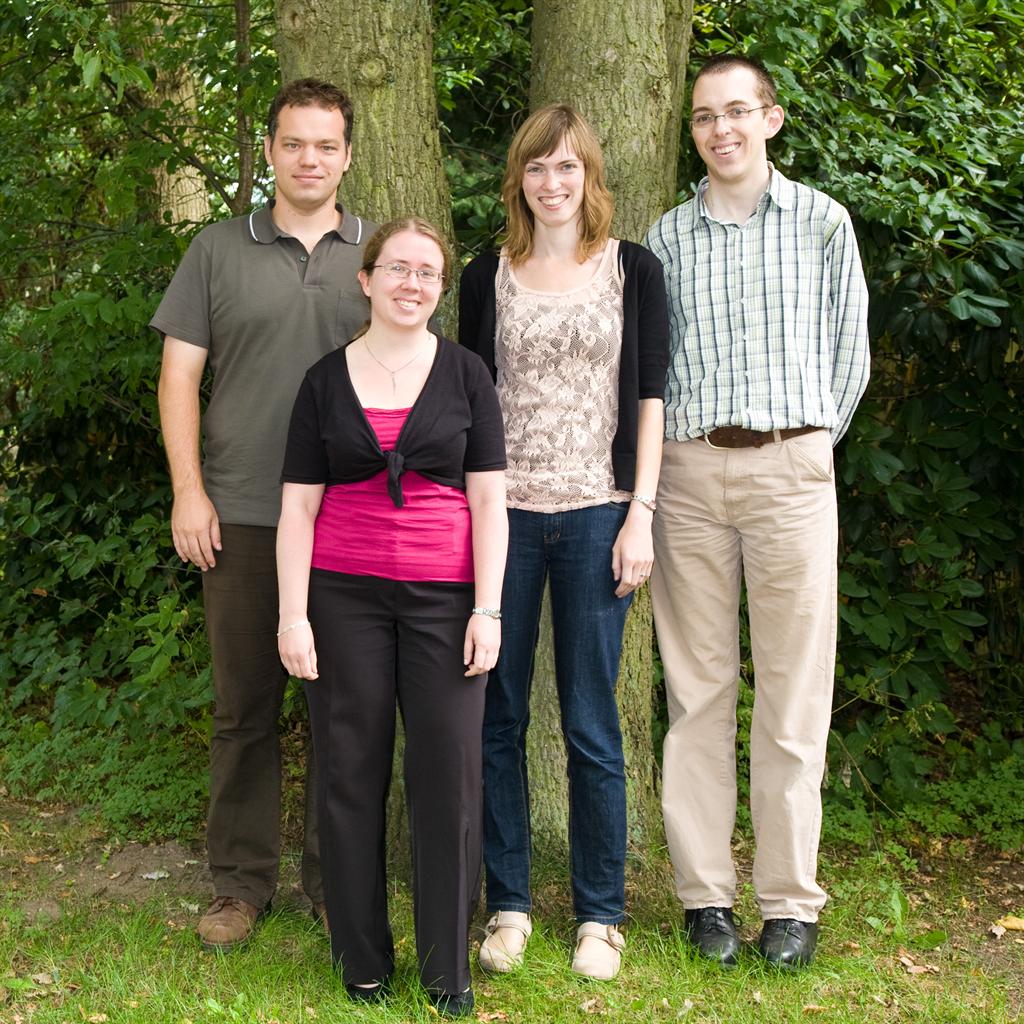 investigated how words are reduced in Dutch, English, French, Spanish and Czech, and
how these variants are understood by native listeners. We studied the occurrence and
characteristics of reduced pronunciation variants on the basis of a number of corpora of
casual speech, most of which we created ourselves (My corpus webpage). We studied the production and
comprehension of these variants by means of psycholinguistic experiments. For a summary
of results please see an article that appeared in Lingua, mp3 and video.
investigated how words are reduced in Dutch, English, French, Spanish and Czech, and
how these variants are understood by native listeners. We studied the occurrence and
characteristics of reduced pronunciation variants on the basis of a number of corpora of
casual speech, most of which we created ourselves (My corpus webpage). We studied the production and
comprehension of these variants by means of psycholinguistic experiments. For a summary
of results please see an article that appeared in Lingua, mp3 and video.
This project officially ended in 2012, but I will continue working on these topics with
PhD students Martijn Bentum, Mybeth Lahey and Malte Viebahn and with research assistant Alice
Kolman. This project was mainly funded by a
European Young Investigator Award from the European Science Foundation, with additional
funding from the Max Planck Institute for Psycholinguistics and the Marie Curie Training
Network Sound to Sense.
Project 2: Understanding reduced variants in a foreign language
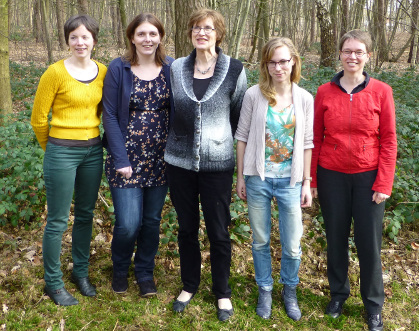 In the project "The challenge of reduced pronunciation variants in conversational speech
for foreign language listeners" (2012 - 2016), we are investigating how advanced late
learners of a foreign language understand reduced pronunciation variants and sentences
containing these variants. We are conducting comprehension and perception experiments
(including eye-tracking and ERP experiments) using stimuli spliced from spontaneous
conversations. We will also conduct several experiments investigating how advanced
learners' comprehension skills can be improved. I am working on this project together with PhD students Sophie Brand and Ellen Aalders and with post-doc researcher Kimberley Mulder. Rian Zondervan is our project manager. This project is funded by the European Research Council (ERC).
In the project "The challenge of reduced pronunciation variants in conversational speech
for foreign language listeners" (2012 - 2016), we are investigating how advanced late
learners of a foreign language understand reduced pronunciation variants and sentences
containing these variants. We are conducting comprehension and perception experiments
(including eye-tracking and ERP experiments) using stimuli spliced from spontaneous
conversations. We will also conduct several experiments investigating how advanced
learners' comprehension skills can be improved. I am working on this project together with PhD students Sophie Brand and Ellen Aalders and with post-doc researcher Kimberley Mulder. Rian Zondervan is our project manager. This project is funded by the European Research Council (ERC).
Project 3: Learning reduced variants in a foreign language
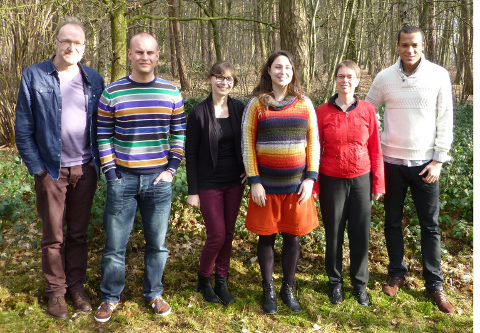 My third major project on reduced pronunciation variants, "Learning pronunciation variants
for words in a foreign language” (2012 - 2017), is more theoretical in nature than the
ERC project. We are investigating how adults who start to learn a foreign language build
representations for reduced pronunciation variants in their mental lexicons, and how these
lexical representations evolve over time. We are conducting comprehension and perception
experiments, including experiments that combine ERP with fMRI measurements. I am
currently working together with Dr Louis ten Bosch and Mark Noordenbos and with PhD students Sascha Coridun, Lisa Morano and Annika Nijveld. This project is funded by a vici grant from the Netherlands Organisation for Scientific Research (NWO).
My third major project on reduced pronunciation variants, "Learning pronunciation variants
for words in a foreign language” (2012 - 2017), is more theoretical in nature than the
ERC project. We are investigating how adults who start to learn a foreign language build
representations for reduced pronunciation variants in their mental lexicons, and how these
lexical representations evolve over time. We are conducting comprehension and perception
experiments, including experiments that combine ERP with fMRI measurements. I am
currently working together with Dr Louis ten Bosch and Mark Noordenbos and with PhD students Sascha Coridun, Lisa Morano and Annika Nijveld. This project is funded by a vici grant from the Netherlands Organisation for Scientific Research (NWO).
Related smaller projects
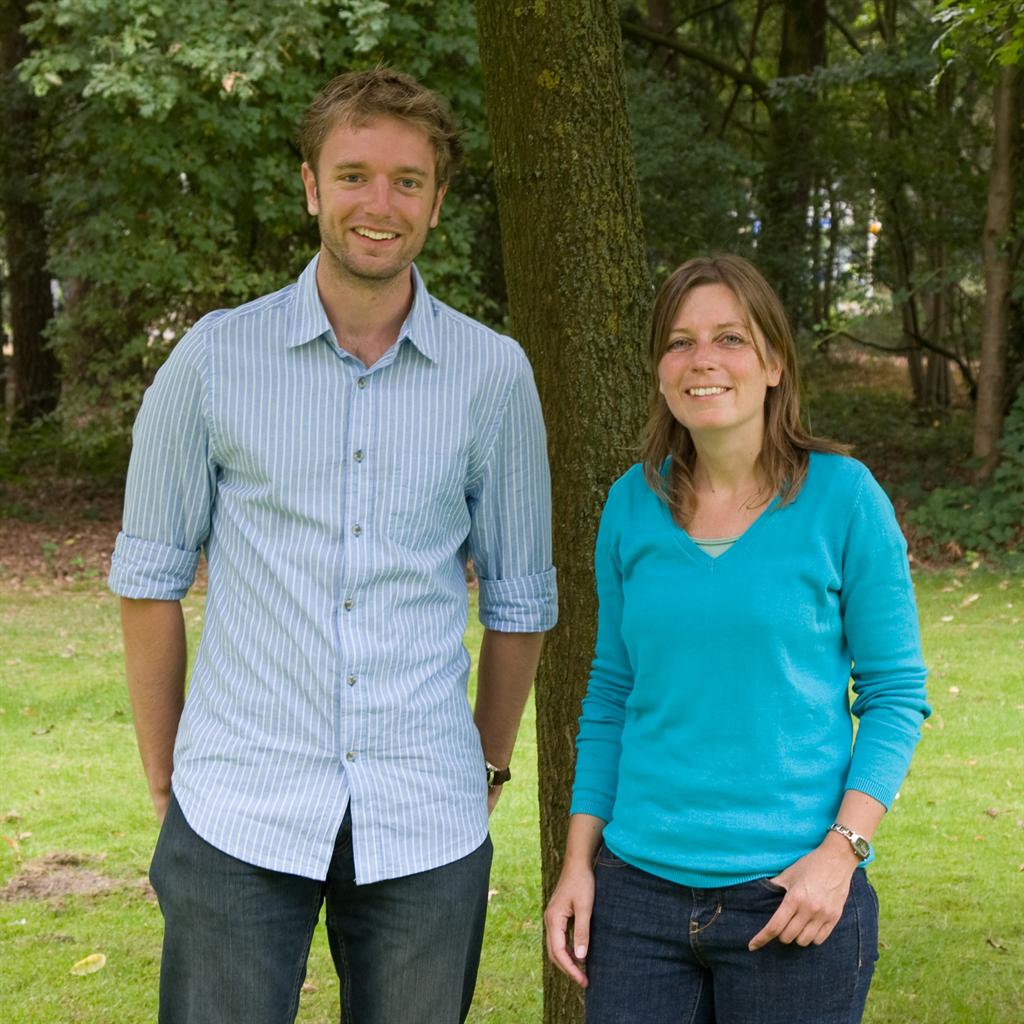 I am also working on a few smaller projects that are related to my work on reduced variants.
I am working together with Dr Margot van Mulken and PhD students Kim Koppen and Huib
Kouwenhoven on the characteristics of formal versus informal speech. Together with Dr
Esther Janse and her PhD students, I am investigating how young adults and elderly people
understand characteristics of spontaneous speech other than reduction.
In the past, I worked on the role of prosodic structure in speech production and
comprehension (with PhD student Claudia Kuzla, who finished in 2009), and on how the
segments in a listener's native language affects speech perception in a foreign language (with
PhD student Anita Wagner, finished in 2008).
I am also working on a few smaller projects that are related to my work on reduced variants.
I am working together with Dr Margot van Mulken and PhD students Kim Koppen and Huib
Kouwenhoven on the characteristics of formal versus informal speech. Together with Dr
Esther Janse and her PhD students, I am investigating how young adults and elderly people
understand characteristics of spontaneous speech other than reduction.
In the past, I worked on the role of prosodic structure in speech production and
comprehension (with PhD student Claudia Kuzla, who finished in 2009), and on how the
segments in a listener's native language affects speech perception in a foreign language (with
PhD student Anita Wagner, finished in 2008).
The processing of morphologically complex words
Finally, I am also studying the characteristics of the mental lexicon on the basis of how
we process morphologically complex words. Most of this research has involved Dr Harald
Baayen and Dr Rob Schreuder. For a summary please see Ernestus (2006) and (mp3). Currently I am working on this topic
together with PhD student Laura de Vaan.
Please, see here for more information about my research group.
| 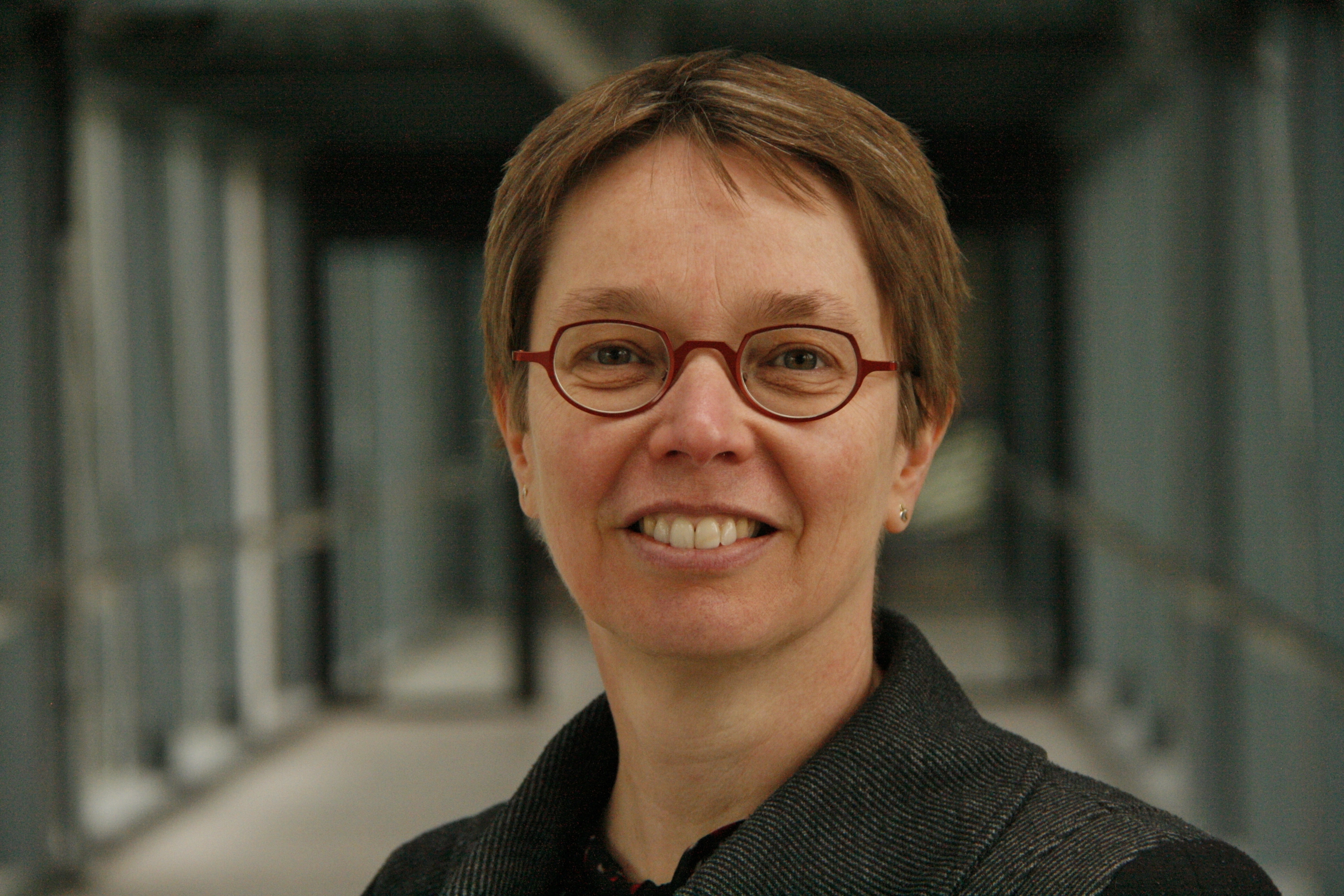
 investigated how words are reduced in Dutch, English, French, Spanish and Czech, and
how these variants are understood by native listeners. We studied the occurrence and
characteristics of reduced pronunciation variants on the basis of a number of corpora of
casual speech, most of which we created ourselves (
investigated how words are reduced in Dutch, English, French, Spanish and Czech, and
how these variants are understood by native listeners. We studied the occurrence and
characteristics of reduced pronunciation variants on the basis of a number of corpora of
casual speech, most of which we created ourselves ( In the project "The challenge of reduced pronunciation variants in conversational speech
for foreign language listeners" (2012 - 2016), we are investigating how advanced late
learners of a foreign language understand reduced pronunciation variants and sentences
containing these variants. We are conducting comprehension and perception experiments
(including eye-tracking and ERP experiments) using stimuli spliced from spontaneous
conversations. We will also conduct several experiments investigating how advanced
learners' comprehension skills can be improved. I am working on this project together with PhD students
In the project "The challenge of reduced pronunciation variants in conversational speech
for foreign language listeners" (2012 - 2016), we are investigating how advanced late
learners of a foreign language understand reduced pronunciation variants and sentences
containing these variants. We are conducting comprehension and perception experiments
(including eye-tracking and ERP experiments) using stimuli spliced from spontaneous
conversations. We will also conduct several experiments investigating how advanced
learners' comprehension skills can be improved. I am working on this project together with PhD students  My third major project on reduced pronunciation variants, "Learning pronunciation variants
for words in a foreign language” (2012 - 2017), is more theoretical in nature than the
ERC project. We are investigating how adults who start to learn a foreign language build
representations for reduced pronunciation variants in their mental lexicons, and how these
lexical representations evolve over time. We are conducting comprehension and perception
experiments, including experiments that combine ERP with fMRI measurements. I am
currently working together with
My third major project on reduced pronunciation variants, "Learning pronunciation variants
for words in a foreign language” (2012 - 2017), is more theoretical in nature than the
ERC project. We are investigating how adults who start to learn a foreign language build
representations for reduced pronunciation variants in their mental lexicons, and how these
lexical representations evolve over time. We are conducting comprehension and perception
experiments, including experiments that combine ERP with fMRI measurements. I am
currently working together with  I am also working on a few smaller projects that are related to my work on reduced variants.
I am working together with
I am also working on a few smaller projects that are related to my work on reduced variants.
I am working together with